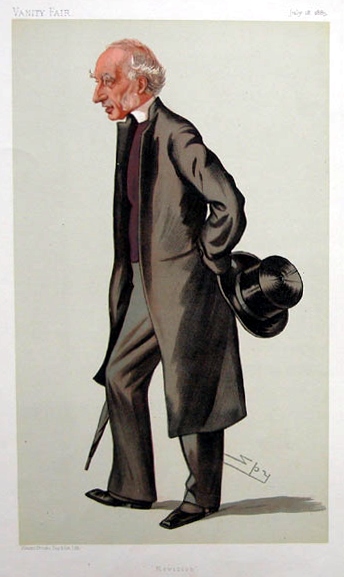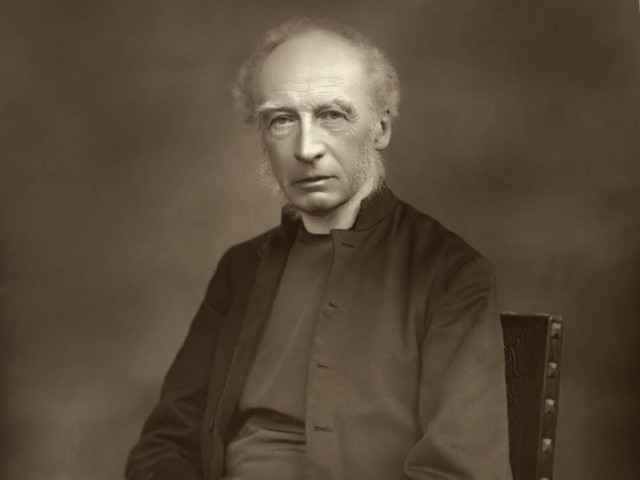
Charles John Ellicott (1819–1905) was an Anglican theologian and bishop of Gloucester. Below is Ellicott’s interpretation of Paul’s enigmatic words in 2 Cor 15:14 from his New Testament Commentary for English Readers. The mystical death of all with Christ is real and effective to the degree that sanctification is a matter of living in accordance with our true nature in Christ, while sin is a denial to be who we really are in Christ (note: I have not studied the rest of Ellicott’s oeuvre, so I possess no knowledge about his theory of the atonement and soteriology in general).
For the love of Christ constraineth us.—The Greek, like the English, admits of two interpretations—Christ’s love for us, or our love for Christ. St. Paul’s uniform use of this and like phrases, however, elsewhere (Romans 5:5; Romans 8:35; 1 Corinthians 16:24; 2 Corinthians 13:14), is decisive in favour of the former. It was the Apostle’s sense of the love that Christ had shown to him and to all men that was acting as a constraining power, directing every act of every spiritual state to the good of others, restraining him from every self-seeking purpose.
Because we thus judge, that if one died for all.—Better, as expressing the force of the Greek tense, Because we formed this judgment. The form of expression implies that the conviction dated from a given time, i.e., probably, from the hour when, in the new birth of his conversion, he first learnt to know the universality of the love of Christ manifested in His death. Many MSS. omit the “if,” but without any real change of meaning. It is obvious that St. Paul assumes the fact, even if it be stated hypothetically. The thought is the same as in the nearly contemporary passage of Romans 5:15-19, and takes its place among St. Paul’s most unqualified assertions of the universality of the atonement effected by Christ’s death. The Greek preposition does not in itself imply more than the fact that the death was on behalf of all; but this runs up—as we see by comparing Matthew 20:28, Mark 10:45, with Mark 14:24, John 15:13—into the thought that the death was, in some very real sense, vicarious: in the place of the death of all men. The sequence of thought involves that meaning here.
Then were all dead.—These strange, mysterious words have received very different interpretations. They cannot be rightly understood without bearing in view what we may call the mystic aspect of one phase of St. Paul’s teaching. We may, perhaps, clear the way by setting aside untenable expositions. (1) They cannot mean, however true the fact may be in itself, that the death of Christ for all showed that all were previously under a sentence of condemnation and of death, for the verb is in the tense which indicates the momentary act of dying, not the state of death. (2) They cannot mean, for the same reason, that all were, before that sacrifice, “dead in trespasses and sins.” (3) They can hardly mean that all men, in and through that death, paid vicariously the penalty of death for their past sins, for the context implies that stress is laid not on the satisfaction of the claims of justice, but on personal union with Christ. The real solution of the problem is found in the line of thought of Romans 5:17-19, 1Corinthians 11:3; 1Corinthians 15:22, as to the relation of Christ to every member of the human family, in the teaching of Romans 6:10, as to the meaning of His death—(“He died unto sin once”). “Christ died for all”—this is the Apostle’s thought—“as the head and representative of the race.” But if so, the race, in its collective unity, died, as He died, to sin, and should live, as He lives, to God. Each member of the race is then only in a true and normal state when he ceases to live for himself and actually lives for Christ. That is the mystic ideal which St. Paul placed before himself and others, and every advance in holiness is, in its measure, an approximation to it.
